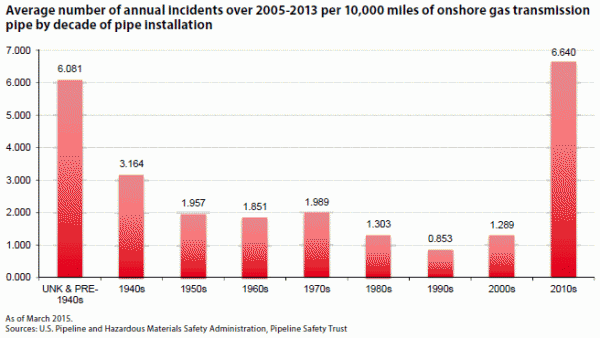By Steve Ahlquist - RI Future, November 30, 2015
Two safety inspectors who worked on Spectra Energy’s proposed methane gas pipeline that will cut through Burrillville, RI, say the company cut corners when it came to project, worker and environmental safety.
“Right now, what they’re hoping to do, is they’re hoping to slam all this through, and then at the end ask for forgiveness,” said one of the former inspectors. “Oops, sorry about that, I didn’t know, let me write you a check. Because once this thing’s turning meter, they’re going to be making millions of dollars a day. It doesn’t matter what your problems are…”
The other added, “We were told to shut the fuck up or quit.”
Both men, who spoke on the condition of anonymity, were subcontracted by Spectra and both were terminated from the project this summer. I was introduced to them through FANG (Fighting Against Natural Gas), an environmental group that opposes the project, and have spent time talking with both men by phone as well as reviewing audio interviews and emails provided by FANG.
“Like every other company, Spectra gives a tremendous presentation about their commitment to safety, but their actions lack any kind of resolve. No one ever says, ‘Safety’s #2 here,’” said the first inspector. “At every turn when I made a safety suggestion, I was met with monumental resistance from the company on every level.”
Perhaps suspecting their days are numbered, fossil fuel companies are rushing to build the infrastructure required to keep us dependent on methane or “natural” gas for the next 50 years or more, even as evidence mounts that methane is a major contributor to climate change. This gives lie to the claim that methane will serve as a bridge fuel, something to ease the transition from fossil fuels to green energy sources, as the infrastructure investments being made are long term and permanent. Companies are investing billions laying pipelines, building compressor stations, and constructing energy plants and other infrastructure ahead of industry-wide extinction.
In their rush to build, safety and environmental concerns are being brushed aside, suspect many experts. A recent “Pipeline Safety Trust analysis of federal data,” shows that, “new pipelines are failing at a rate on par with gas transmission lines installed before the 1940s.” Sarah Smith writes that Carl Weimer, director of the Pipeline Safety Trust, told attendees at a National Association of Pipeline Safety Representatives annual meeting in Tempe, AZ that, “The new pipelines are failing even worse than the oldest pipelines.”

Though some of the problems may be related to workers learning how to implement the latest technologies, Weimar says, “there’s also some suggestions that we’re trying to put so many new miles of pipeline in the ground so fast that people aren’t doing construction … the way they ought to.”
In the same piece Smith quotes Robert Hall, of the National Transportation Safety Board Office of Railroad, Pipeline and Hazardous Materials Investigations, who agreed that, “the rapid construction of pipelines in the U.S. is likely a contributing factor to ‘people … out there possibly taking shortcuts or not being as diligent’ as they would be if the pace of construction were less fervent.”
Coming forward to confirm these observations are two former Spectra contractors I’m calling Inspector One and Inspector Two. Both wish to remain anonymous for this piece for personal and professional reasons, though they know that their former bosses may be able to identify them.





 As the Aliso Canyon natural gas leak continues to spew into the air, Rhode Island’s small hamlet of Burrillvillle is now facing the chance to be the future site of such a catastrophe. With the help of a key Democratic Party endorsement and accession from labor union bosses who should know better, Rhode Island may soon host a fracked natural gas plant rather than the saner move of a sustainable electric plant.
As the Aliso Canyon natural gas leak continues to spew into the air, Rhode Island’s small hamlet of Burrillvillle is now facing the chance to be the future site of such a catastrophe. With the help of a key Democratic Party endorsement and accession from labor union bosses who should know better, Rhode Island may soon host a fracked natural gas plant rather than the saner move of a sustainable electric plant.
 Web editor's note: The following article details the exploits of one or more IWW members.
Web editor's note: The following article details the exploits of one or more IWW members.